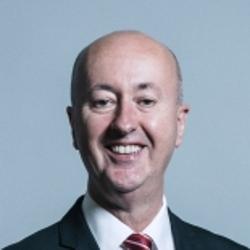Schools: Speech and Language Therapy
(asked on 28th April 2023) - View SourceQuestion to the Department for Education:
To ask the Secretary of State for Education, with reference to the Centre for Social Justice’s report entitled Cracks in Our Foundations, published February 2023, what assessment she has made of the implications for her policies of that report's findings on (a) primary school teachers' views on the impact of support for children with speech, language and communication needs on foundational skills post pandemic, (b) head teachers' use of local NHS or out-of- school speech therapist services for speech and language support in their school and the availability of those services and (c) trends in demand for speech and language needs support post pandemic.
The department wants every child to achieve well in their early years, at school and in further education, and ensuring that speech and language needs are identified early is crucial to enable the right support to be put in place. Schools are required to have arrangements in place to identify speech and language needs early. These arrangements should involve collaborative working between school staff, family and the Special Educational Needs Coordinator (SENCO).
The department recognises that equipping the sector to deliver reform for children and young people is a long-term challenge, and we know that the impact of the cost of living, compounded by the impact of the COVID-19 pandemic, will make this even more complex.
The government’s Special Educational Needs and Disabilities (SEND) and Alternative Provision (AP) Improvement Plan committed to introducing a new SENCO National Professional Qualification, which will ensure SENCOs consistently receive high-quality, evidence-based training. The government is investing up to £180 million of recovery support in the early years sector to upskill early years practitioners in undertaking the Early Years Foundation Stage two-year-old progress check, including funding for the Nuffield Early Language Intervention.
We are also taking a number of cross-government measures to address the impact of the pandemic on access to specialist services.
To support the supply of more speech and language therapists and occupational therapists to the NHS, since September 2020 all eligible undergraduate and postgraduate degree students have been able to apply for a non-repayable training grant of a minimum of £5,000 per academic year, with further financial support available for childcare, accommodation, and travel costs. In partnership with NHS England, we are also funding Early Language and Support for Every Child pathfinders, which will trial new ways of working to better identify and support children with speech, language and communication needs in early years and primary schools.
In our SEND and AP Improvement Plan the department has also committed to working with the Department of Health and Social Care to take a joint approach to SEND workforce planning, informed by a stronger evidence base. We will establish a steering group in 2023 to oversee this work. We have also committed to producing a suite of SEND and AP practice guides to equip frontline professionals to make best use of provision and identify needs early, accurately and consistently. Speech and language development is one of the areas we will prioritise.

